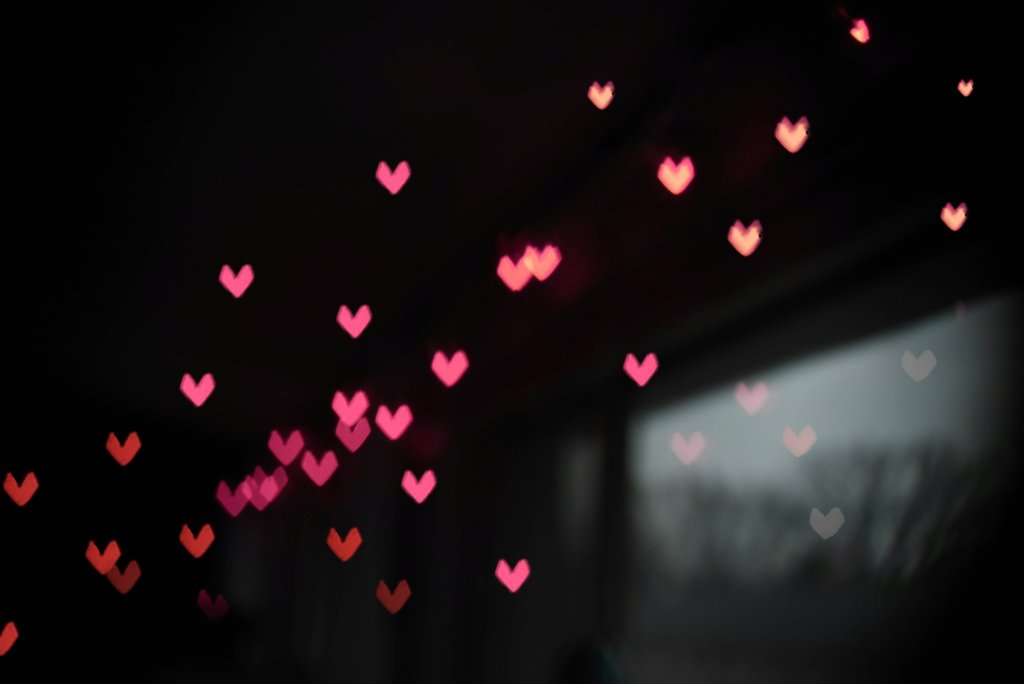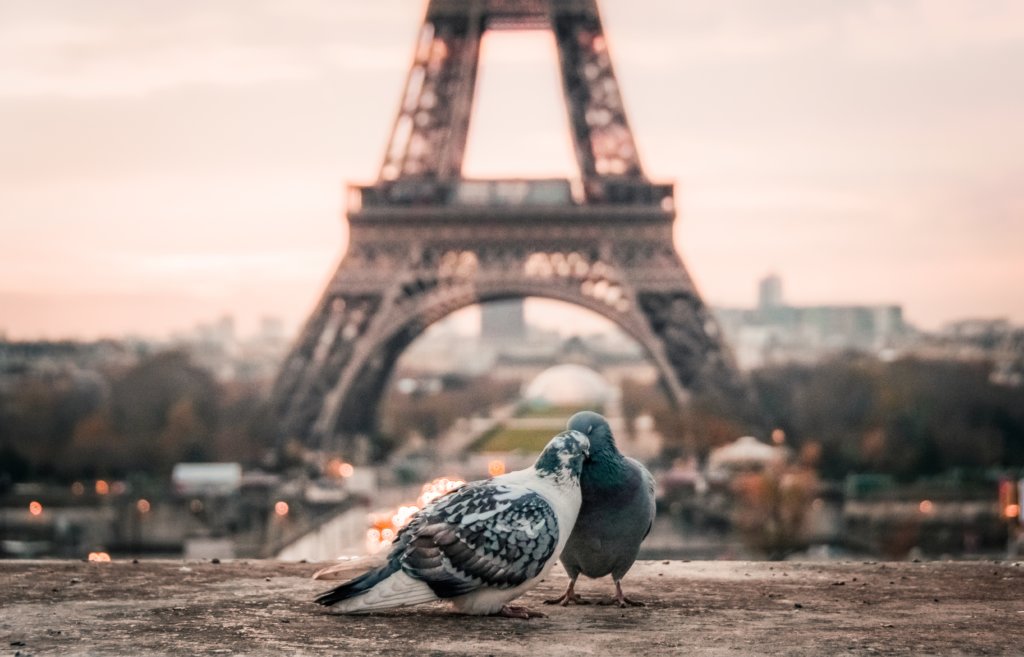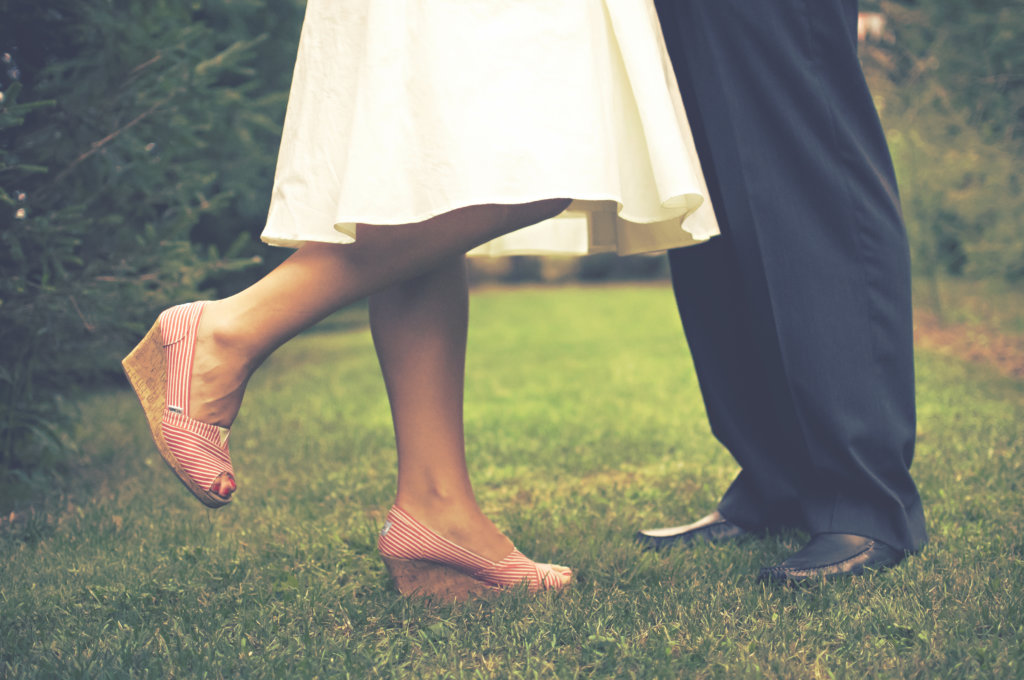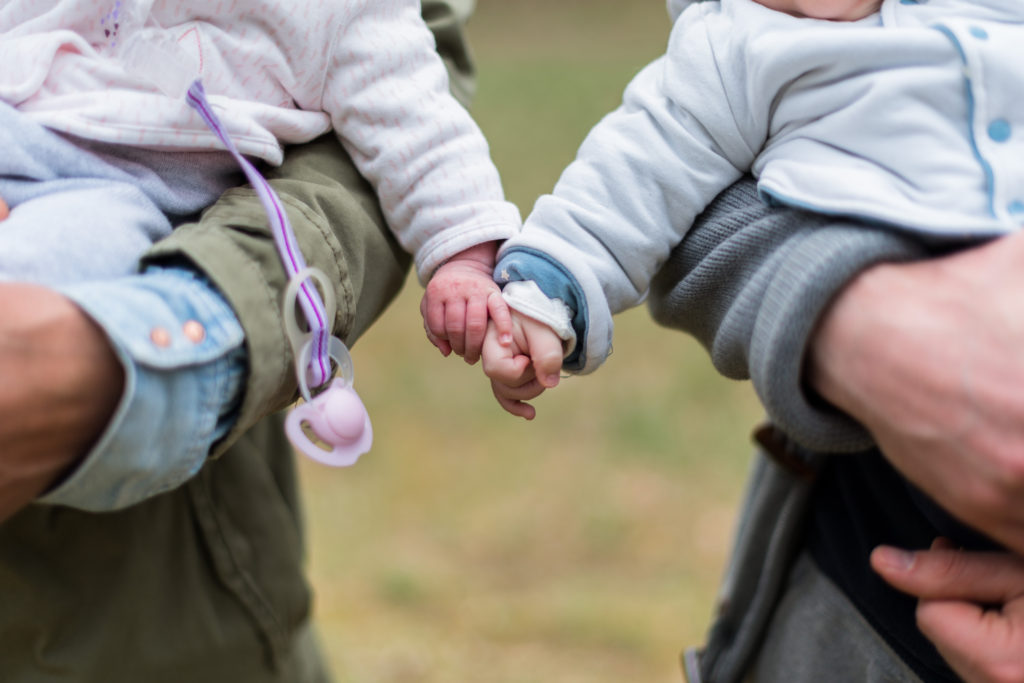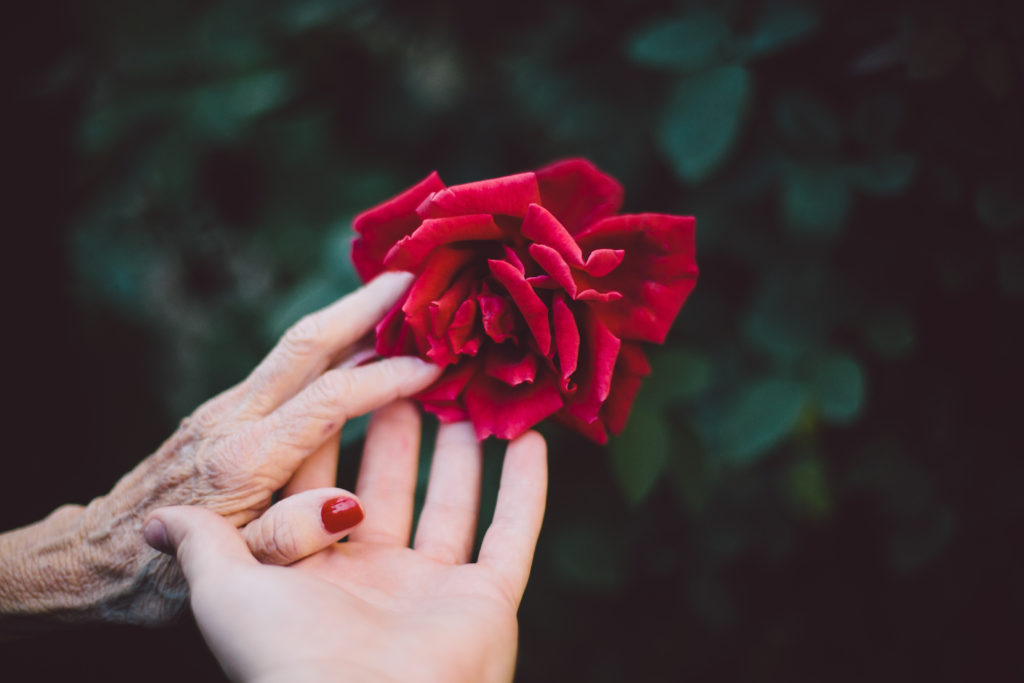I have to admit I’m feeling rather spiteful and vindictive. I’m pissed off at the hypocrisy of Mitch McConnell and his ilk regarding replacing Ruth Bader Ginsburg’s justice seat. I’m livid Breonna Taylor’s murderers – Brett Hankison, Myles Cosgrove, and Jonathan Mattingly – were not punished sufficiently for their crimes. I’m angry and frankly scared that Donald Trump will refuse to cede power if he’s voted out. Some vigilante justice sounds mighty appealing right now. However, I also remind myself what my spiritual philosophy says about justice.
First off, it’s a law of nature that for every action there’s an equal and opposite reaction. Actions have consequences, even if they’re not expressed right away. For instance, my spiritual teacher was on a walk with someone when they passed by the house of a Brahmin who just died. My spiritual teacher told his companion:
“Though this man was a prominent member of the Brahmin community, he was not a pious man as befits a Brahmin. In fact, he was a sinful and greedy man who never reflected on his misdeeds or repented for them. He was full of caste vanity and arrogance. Throughout his life he treated the lower castes with scorn. What will be his reward for his pride and vanity? He will be reborn as a dog. If he wanders into a gathering of Brahmins, will they not treat him as an untouchable and drive him away, just as he did to others in this life?”
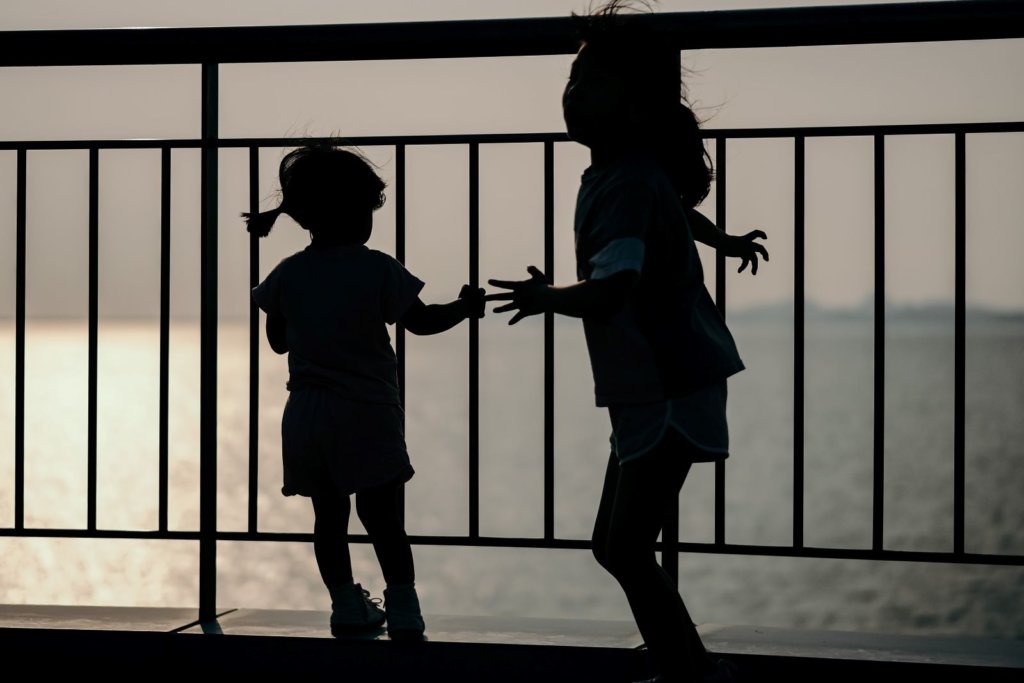
This picture felt like a good mix of imprisonment but also love. Photo by insung yoon on Unsplash
Actions have consequences, for better or for worse. What I notice in telling this story is some glee. My response is, “Good. You got what you deserved.” But sharing that I also feel a pinprick of discomfort because it’s mean-minded. I want to see people punished for their crimes but my spiritual teacher also says we don’t have the right to punish someone we do not love, and furthermore, the amount of punishment meted out must not exceed the amount of love we feel. Yikes. Why is that?
If life is about love, about seeing the divine in everyone, it makes sense that all actions are to be taken with that spirit. If I punish someone out of spite, it creates a feeling of vindictiveness. My mind degrades and the person punished also likely feels resentment. Instead, punishment should be corrective in nature. My spiritual teacher also says, “If a system of corrective measures is introduced, criminals, whether they were deeply involved in the crime or not, will have no reason to complain against anyone. Although there may be flaws in the judgment, it will not harm them in any way. A person who is definitely guilty will benefit from a system of corrective measures, and even a person who is not guilty will benefit from such a system.”
I know I’m being challenged right now to maintain my feelings of love, but what softens my heart is thinking power-hungry people are sick. Those who don’t care one iota about anyone other than themselves are mentally ill. Those who seek to divide others, to promote inferiority and superiority are unwell. As a society, we must take corrective measures – I’m not suggesting we throw our hands up in the air and excuse anyone’s behavior – but can we continue to see God in everyone, especially people we don’t like? That’s the practice anyway.
I dream of a world where we realize the universe will restore balance without any input from us. A world where we recognize actions have consequences for better or for worse. A world where we try to correct others instead of punishing them. A world where we see God in everyone, even people we want to punish.
Another world is not only possible, it’s probable.
On Saturday, I cried while sitting in my bathtub reading a fictional book set during World War II. The characters are imaginary, but the circumstances are not. I cried thinking about the atrocities that my own grandparents endured, and I cried thinking about the atrocities people continue to endure. Even now, children sit in jails, unwashed, covered in lice. Thank goodness a lawsuit is underway, but still. Why do we do this to each other?
According to my spiritual philosophy, people reincarnate. And not only do they reincarnate, they evolve. Evolve from what? They start from the simplest organism and get progressively more complex until finally reaching human form. What that means on a practical level is some people are only one step removed from animals. Some people are still guided by their baser instincts and unable to access higher levels of their consciousness. Before someone sends me an email and says many animals behave better than some human beings, I will say, yes, you are correct. Many animals, especially domesticated ones, shows high levels of compassion and love. Wild animals though? Not as common.
It would be easy to say some human beings just aren’t as evolved and leave it at that, but human beings are complicated. It’s not only about evolution, but also about what propensities, or vrttis, we choose to engage with. Some people derive pleasure from cruelty and hatred. In New Age circles, people liken this to operating from the lower chakras, or energy centers. However, in my spiritual tradition, that’s a little too simplistic. Almost every chakra point has positives and negatives. For instance, the throat chakra is associated not only with sweet expression, but vitriolic expression as well. We all have the capacity for both good and evil within us.
Why am I bringing this up? I’m suggesting the importance of holding on to our empathy. We’ve all seen movies where the tortured become the torturers. Where victims become perpetrators. I’m not suggesting good and moral people of the world just “be nice” to neo-Nazis and their ilk and hope the ensuing treatment will change their minds. I’m not a pacifist by any means. I firmly believe in the use of force when necessary. However, I also think it’s important to not fuel hatred within ourselves. To remember we are all human beings, worthy and deserving of love and respect. For instance, even prisons should be like a reform school, according to my spiritual teacher. And the person in charge should be a teacher who is trained in psychology and who has genuine love for society.
Why does he say this? I don’t know for sure, but I’m guessing it’s because merely turning one group of people after another into inferior beings merely perpetuates the abuse cycle. There’s that famous poem from Martin Niemöller about how first they came for the socialists and he did not speak out because he was not a socialist, and then eventually they came for him and there was no one left to speak for him. Not only does he suggest speaking up for others, but he demonstrates how hatred travels from group to group.
What I’d like to see is a world where we halt hatred in its tracks. A world where we remember all human beings, regardless of their race, nationality, gender, sexual orientation, etc., are human beings. A world where we treat each person as a sibling, a member of our universal family. A world where we take corrective action, but we do it with love in our hearts. A world where we sow love among hate.
Another world is not only possible, it’s probable.
In my post the other week about fame, I said I’ll be enough when I’m worthy. I’ve mulled that over the past few weeks, wondering how to feel worthy, particularly when tying worth to external achievements is no longer working for me. The only thing I’ve come up with thus far is to hear it from my internal, loving presence. What follows is a letter from that loving source to me.
My dear, you are loved and you are worthy. My love for you is not dependent on what you achieve or what you look like. My love for you is not even dependent on how you behave. I love you already. You are worthy, you have merit, solely because you are mine.
When you were a child you played with dolls and you loved them dearly. They were precious not because they did anything, not because they treated you well, or won first place in a contest, but because they belonged to you. And the same is true about you. You belong to me and that makes you precious, that makes you loved, that makes you worthy.
You could spend the rest of your life sitting around the house, watching Netflix, never contributing anything ever again. You could spend the rest of your life snapping at every person you meet, thinking only of yourself and your needs. You could spend the rest of your life in obscurity. You could do all of those things and you’d still be loved and you’d still be worthy.
Your task now is to feel into that love and that worthiness. To know you are special because you are special to me. I want you to walk around confident of those two facts because they are facts. They will never change no matter what you do or how you behave. They are and will be persistent throughout your entire life. I love you.
I dream of a world where we all feel we are loved and we are worthy. A world where we give and receive that unconditional love to ourselves irrespective of what we look like, what we achieve, or how we behave. A world where we know we are precious just as we are.
Another world is not only possible, it’s probable.
I attended a friend’s wedding this weekend and so marriage is on my mind. Here is a post from nearly three years ago on the subject.
Marriage has been on my mind a lot because everyone and their mother (including mine) is trying to set me up. “He’s single, you’re single: It’s a match!” No one has actually said that to me, but that’s the impression I get based on who people are trying to set me up with. Now, I realize a single person writing about marriage is like a virgin writing about sex, but here I am anyway, fumbling about.
An aspect that I don’t hear discussed often about marriage is its ability to enhance spiritual growth. Usually, marriage is couched in terms of companionship, of having someone to start a family with, and just generally a partner in life that you love. Something else that seems to creep in from my outside perspective is this idea that someone else is responsible for a person’s feelings. That someone else is responsible for our happiness.
I have a big problem with that way of thinking, because as was so aptly pointed out in a New York Times piece called “The Wedding Toast I’ll Never Give,” there will be times where a person will look at his or her spouse and feel only rage. Nobody else is responsible for my happiness and putting them in charge of it is only asking for trouble. I can speak from experience here because I used to make certain people my cocaine and that resulted in some of the most painful experiences of my life.
I often quote Marianne Williamson who says, “Romantic relationships are like getting a PhD in spirituality.” What does that mean exactly? It means other people don’t exist to make me feel good; it means every person and every relationship is a teacher. All of them provide opportunities to bring me closer to the divine. Marriage then becomes about living my life in a “new way with a special type of responsibility,” as my spiritual teacher would say.
In fact, the marriage oaths of my spiritual practices are that the person takes upon themselves the responsibility for their spouse’s food, clothes, education, medical care, etc. That the spouse will be vigilant to safeguard the other’s mental peace and ensure their mental progress, as well safeguarding the other’s spiritual progress. These oaths to me mean sincerely taking care of another person’s all-around welfare and growth. That marriage is about taking into account not only another person’s needs, but trying to help them along the spiritual path. The emphasis is not on the self, but on another.
Does that sound dry and kind of clinical? It’s not meant to be – there’s something special about romantic love, something almost magical, and mystical and that, too, is an important part of marriage. I’m not discounting pleasure or love here, I’m just saying there’s more to marriage than just love, at least from a spiritual perspective.
I guess what I’m doing here is trying to assuage my single self, to provide some comfort because it’s clear there’s no way I could be satisfied with any single guy who walked through my door, because whoever I marry needs to be someone that encourages me to grow mentally and spiritually. That marriage for me is not about having someone warm my bed or keep me from feeling lonely on a permanent basis. Love is important, but I’m looking for love plus something else.
I dream of a world where we all take a different view of marriage. A world where we revere love, but we also add something more to the mix. A world where we think about marriage in terms of aiding another in the form of the divine.
Another world is not only possible, it’s probable.
After reading a thought-provoking article on Buzzfeed the other day about the movie Titanic, I decided to re-watch it. The love Jack feels for Rose, a love where he’s willing to put his life on the line for her multiple times, moved me, as it did millions. That sort of love reminded me of a poem by Daniel Ladinsky who wrote:
Even
After
All this time
The Sun never says to the Earth,
“You owe
Me.”
Look
What happens
With a love like that,
It lights the
Whole Sky.
I want a love like that, a love that lights up the whole sky. And I don’t mean only in the romantic sense, although that would be nice too. The work for me at the moment, maybe all moments, is the relationship with myself. My therapist reminds me over and over again I must give to myself internally what I want externally. And furthermore, I must give from a place of abundance and surplus. That I fill up my own cup first and then give from the overflow. Thus, in order to experience a love like Jack feels for Rose, a love like the Sun feels for the Earth, I must turn the focus toward me.
Have I mentioned self-love is hard? Because it’s hard. When we talk about self-love, usually people mention affirmations, as if saying “I love you” while looking into the mirror is all it takes. I wish. Love is setting boundaries, saying no, practicing integrity, and thinking beyond the short term. It means not eating a gallon of ice cream because later you know your stomach will hurt.
I have to believe the more I love myself, the more other people learn to love themselves, and we create a ripple effect until eventually we are lighting up not only each other, but the whole sky. This is my last post of 2017 and I’m writing it on Christmas Eve, which feels appropriate. I’m not Christian, but I appreciate Jesus for the loving, kind, compassionate being he seemed to be. I’m happy to celebrate the birth of someone like that, who embodies those characteristics, and I write this post a harbinger of what I hope will come for us all.
In the new year, I’d like us all to feel loved and cherished. I want us all to work together, to survive our version of the Titanic, steering toward an iceberg we are powerless to miss. I want us to take each other into our metaphorical lifeboats, and literal lifeboats too. I want us to make space for all our siblings, not because it’s the “right” thing to do, not because we “should,” but because so much love spills from our hearts we can’t do anything else.
I dream of a world where we’re taking care of each other, where we’re lifting each other up. A world where we practice deep, real love. A love that is generous, a love that moves us to sacrifice some of our comfort in service of someone else. A love so big and beaming, it lights up the whole sky.
Another world is not only possible, it’s probable.
The other week I wrote that all any part of me wants is love and presence. Ever since I said, “I love you” to my fearful part, it’s as if I triggered a rock slide, and now other parts are popping up and saying, “What about me? Do you love me, too?”
The practice is a difficult one because so much of my life has been geared toward fighting, toward struggling, to talking back. For instance, if I think I’m fat, my response will be, “No you’re not.” I don’t allow for the thought to even exist. Since the other week though and learning to love a part I previously only pushed away, instead of fighting back, I’m saying, “OK Rebekah. So what if you are? I love your body no matter what. If it’s fat, if it’s thin, if it’s not functioning the way you want it to, I love it, and you anyway.”
I feel vulnerable even typing that because it’s true, what I long for is unconditional love and I’ve withheld it from myself in a never-ending quest toward an unattainable ideal. I think there’s also a fear if I shower myself with unconditional love that I’ll become an inert blob, but the truth is, love doesn’t mean constant indulgence. Love means compassion, understanding, acceptance, allowance. It means saying to myself, “I see you as you are, right now, and I love you anyway.” From that place, real change and transformation occurs. Loving my fearful part didn’t make me more afraid, quite the opposite. Loving my fearful part gave me a sense of relief and peace unlike any I’ve experienced before.
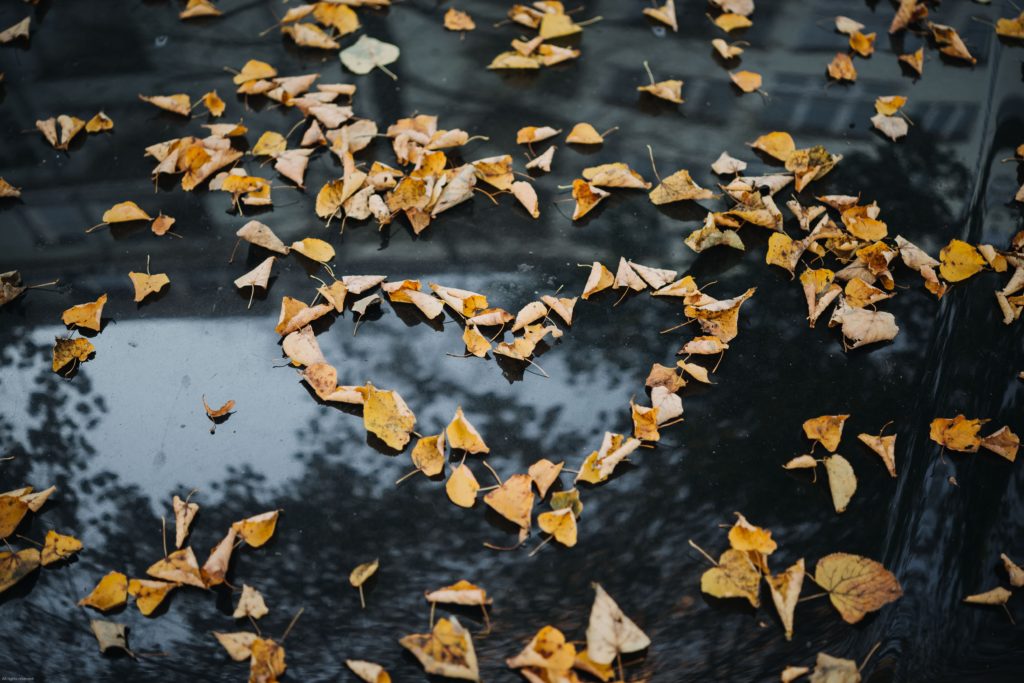
Can I love it all? I’m working on it. Photo by Roman Kraft on Unsplash.
My spiritual practice promotes the cultivation of love. Of viewing everything as an expression of an infinite loving consciousness, of trying to grow the internal feeling of love. Our goal is to love all living beings and to merge ourselves in the source of that feeling. To swim in an ocean of love. The thing is though, if I keep believing some parts of me are not worthy and deserving of love, there’s no way I can give myself over to that ocean. It’s like saying, “Your legs are allowed to wade into the water, but your arms have to stay dry.” I can’t experience complete merger until I’m completely submerged.
What I’m coming to here is recognizing, again, all parts of me want love. My body wants love, my mind wants love, my emotions want love. The cool thing is I can give that to myself. I don’t have to wait for some imagined future that may never come. I don’t have to wait for someone else to come along and say, “I love all parts of you unconditionally.”
If you had asked me five years ago whether I loved myself, I would have said yes because I said affirmations and treated myself with kindness. I checked all the boxes people listed when they spoke of self-love. Now though I’ve reached a new level of love because it’s not just looking in the mirror and saying I love you. It’s saying I love you to the part of me that says mean things. It’s saying I love you to the part of me that’s disappointed. It’s saying I love you to everything, regardless of my judgment of the part. Now the answer to the question, “Do you love me, too?” is “Yes.”
I dream of a world where we love all parts of ourselves, even the parts we don’t particularly like. A world where we recognize every part is worthy and deserving of love. A world where we work toward loving ourselves unconditionally.
Another world is not only possible, it’s probable.
Last week, I wrote about the death of a colleague. In addition to grieving, I’m learning a lot about intimacy.
So often when I think about intimacy, it’s in the context of a romantic relationship, but the truth is, intimacy is not confined to a romantic partner. Real intimacy is like unzipping yourself and displaying your insides, and that can be done with anyone, something I’ve witnessed in this process.
As I share the news about my co-worker’s death, people react in different ways. Some people allow me to cry without offering a diversion or attempting to fix it. Other people become discomfited and say a quick, “I’m sorry,” before moving on to another topic. I’m not deriding people for their reactions – people are where they’re at and will respond how they do. What I notice though is in order to share my feelings with someone else, to be intimate with them, I have to acknowledge my feelings first. If I’m uncomfortable feeling sad, there’s no way I can share that with someone else because I’m shutting the feelings down internally. Someone else may be more than willing to share and connect with me, but if I’m not connected to myself, no one else can connect with me either.
We hear often, “You can’t give what you don’t have,” but I’m a concrete gal and I like examples. As an example, if someone asked me for oranges right now, I’d have to shake my head and say, “Sorry, I don’t have any.” Similarly, I can’t give intimacy if I don’t have it internally.
We think of intimacy and love as “out there,” something to find or force. I can’t tell you how many times I’ve complained about certain men in my life, lamenting that they’re not opening up, as if they were clams I could pry open. I’ve craved intimacy, but it’s only been within recent years I’ve created it internally by embracing all of my emotions. By giving myself space to feel.
Love and intimacy get presented as if we could walk into a store and buy them. We don’t realize intimacy is something we create, something we work on internally. I could be in relationship with the most amazing person, someone who loves intimacy, but if I’m not in touch with my own feelings, if I’m not allowing myself to feel them, we won’t have intimacy. It will be like talking to a brick wall. I say this because that’s also been my experience in grieving. When I share my insides with people who are discomfited, it’s like I threw an egg against a brick wall – my insides are smeared, on display. There’s no reciprocity, only impact. When I share my insides with people who are comfortable with emotion, it’s like I threw an egg at a cloud of cotton – I feel held, comforted, and supported.
Matt Licata, a psychotherapist I follow, synthesizes this concept well:
When all is said and done, perhaps there is no secret to co-creating a fulfilling, supportive, mutually beneficial intimate relationship, as it is always in the end a movement of the unknown. Healthy intimacy is not something you will figure out one day by way of some checklist or magical formula, but something you are asked to live in each moment, in all its chaotic glory. By learning to take care of yourself, you are creating a foundation upon which the mysteries of intimacy can come alive within and around you, providing a crucible like no other for the great work of aliveness that you have come here to embody.
I dream of a world where we embody our emotions. A world where we understand intimacy is not something “out there,” but rather “in here.” A world where we recognize intimacy is not something we find, but rather something we create. A world where we realize intimacy beings with us.
Another world is not only possible, it’s probable.
I found out recently in China if a woman is unmarried by age 27, she’s called “sheng nu,” or “leftover woman.” And if you’re 30 and unmarried? Forget it. Life’s over. That’s literally what these women are told. The whole thing makes my blood boil.
I think what pisses me off most of all is the notion that if a woman has a Master’s degree, or is successful in her field, or if she’s helping others and just generally being a good human, she’s still considered “less than” all because she doesn’t have a ring on her finger. Are you kidding me? When did our worth become defined by our relationship status? When did getting married become the most important metric?
It should be noted here I’m not anti-marriage. I’ve been to about 20 weddings in the past 10 years and am currently at one this weekend. I love weddings. I love marriage. But I do not love the idea that somehow a person is “left over” if they’re still single by a certain age. I say this to myself, too. There’s a part of me that asks, “What’s wrong with me that I’m still single?” I have imagined conversations with people justifying why I’m not married because even internally, I feel a twinge of shame that at my age, 32.5, I’m unmarried. However, hearing about these women in China who are harassed and shamed by their families on a regular basis for being single put me over the edge.
This is not a post where I say there’s nothing wrong with being single, or that there’s a pot for every lid, that eventually we all meet our match. No. This is a post where I fume at patriarchy, which is the precise system that dictates a woman is worthless if she isn’t married. I realize some men feel this way too, but in articles about unmarried Chinese men, it’s couched as a supply issue – too few women – whereas in articles about Chinese women, it’s couched as some unfortunate mystery. That somehow it’s the woman’s fault she’s still single. That my friends, is patriarchy.
My spiritual teacher says, in society the value of a woman is not an iota less than that of a man. And furthermore, every human being is a divine child of God – both the unmarried and the married. That means I could be single until my dying days and my value would not be any less. That means I could be single forever and still do great and worthwhile things. My worth does not go up and down depending on my relationship status, and neither does yours.
I realize some people will still look at me and ask, “Why is she still single? What’s wrong with her?” I can’t do anything about that, but I can do something about my internal dialogue. I can remind myself I’m amazing with or without a partner. And I can do my part to extricate myself from a system that works to make me feel inferior because I’m single. I’m not inferior and neither is anyone else, regardless of their romantic situation.
I dream of a world where we realize our relationship status doesn’t define our value. A world where we recognize shaming people for being single is just another form of oppression, of subtly saying they’re only worth something if they’re attached to someone else. A world where we realize we are fantastic and amazing human beings whether we’re in a relationship or not.
Another world is not only possible, it’s probable.
The other week I posted a news story on facebook with commentary that I have compassion for robbers and the robbed, and was met with so much vitriol it astounded me. People I didn’t know called me a moron (and worse), told me to get off of facebook, etc. What I heard over and over again was, “I’m poor and I’ve never robbed anyone.” That’s great! I’m glad there are poor people that don’t rob others. Keep not robbing.
What strikes me is how me-centered that viewpoint is. There is an inherent expectation that we all act a certain way, but guess what? We don’t. And placing so much onus on the individual doesn’t work. I’m reminded here of the recently passed healthcare bill in the House of Representatives. The terms of the bill are ludicrous in my opinion. “Have you ever been sick? Are you a woman? So sorry, no healthcare insurance for you or you’ll have to pay staggering premiums. Good luck with that.”
Indian philosopher and economist P.R. Sarkar said, “Rich people do not want to consider the needs of the poor, because if they do, they will have to make some sacrifices. Where will their luxuries and comforts come from if hunger does not burn the bellies of the poor?” Our capitalistic society encourages this mindset, encourages us to look out only for ourselves, and try to scramble to the top of the heap by declaring, “I worked hard for this so I earned it!” Yes, but that means the suffering of others continues. It’s easy to dismiss, to say the people in that position just didn’t work hard enough, or try hard enough, or act the right way, or whatever. There are a thousand excuses we could give.
Sarkar said, “[T]o admit that these sufferings are the result of social injustices implies that everyone is responsible.” And that’s the thing, we are all responsible. We are all responsible for each other. The human family includes everyone. I’ve quoted this African proverb before, but it’s pertinent so I’m quoting it again: “If you want to go fast, go alone. If you want to go far, go together.”
I want to go far. I long to go far. How do we do that? What can little ole me do from her apartment here in California? It sounds cheesy as all get out, but one of the answers is love. I’ll close with another quote from Sarkar:
Like any other problem, great or small, there is only one way to solve economic problems, and that is through genuine love for humanity. This love will give people guidance; it will show them what to do and what not to do. It is not necessary to study great numbers of books or to rely upon those who speculate with the future of the silent masses. The only essential requirement is to look upon humanity with genuine sympathy.
I may not be a politician, I may not be an economist or a philanthropist or a CEO, but I sure as heck can love humanity. I can have compassion and sympathy and empathy for those around me. I can keep loving people even through their missteps. I can keep spreading love and embodying love and talking about love even when people call me foolish. And I will.
I dream of a world where a genuine love for humanity is awakened in all of us. A world where we all look out for each other. A world where we understand our progress is linked to those around us. A world where we understand the human family includes everyone and we act accordingly.
Another world is not only possible, it’s probable.
I notice there’s a tendency in me and in society to avoid the deep and dark places. We are uncomfortable with displays of depression and despair.
The other day, a friend posted on facebook that she felt depressed and the majority of her friends said, “Are you getting help? Are you taking medication?” I’m not saying people shouldn’t take meds and shouldn’t seek help, but it’s interesting to notice their reactions. How quickly people turned to solutions instead of saying, “I hear you,” or “Me too.”
I understand the rush toward solutions. I know in myself, the minute I feel depressed or hopeless, I want to leave those states as quickly as possible. I don’t want to sit with the feelings, I don’t want to acknowledge them, I don’t want to give them air time. If I could bypass all the uncomfortable feelings, that would be great, thanks.
As my therapist reminds me, it doesn’t work that way. I can’t pretend certain feelings don’t exist just because I’d rather they didn’t. The only way to move through the feelings is to first have awareness of them, and second to feel them. In thinking of my spiritual practices, I’d like to add a third step.
I am reminded of the work crafted by a monk I knew. He used to say every cell of our body is longing for liberation, is longing for oneness with something greater than ourselves. Not only the parts we acknowledge, but the parts we push away as well. He went to graduate school for psychology and developed a mantra therapy technique combining what he learned there with the principles of our yoga and meditation group. In these heart circles, as he called them, people would sit in a circle. One person would sit in the center of the circle and think about an emotion or belief they wanted release from. Then everyone on the perimeter sang to the person in the center. They verbally bathed the person with a Sanskrit mantra, sending them love. They imagined love coming through them and directed it to the person in the center of the circle.
I’ve been in many a circle, and people often weep or their expression softens or they start beaming. Something happens. Something happens because all parts of us want love. All parts want acknowledgment. All parts want us to say, “I see you, I hear you, and I love you.”
This week as I’ve sat with my own hard feelings, I’ve directed love their way. Not to drown them out, but in an act of tenderness and care. As Doreen Virtue says, “Love is the miracle that heals all things,” and that includes me. Instead of hating certain emotions, instead of pushing them away, instead of pretending they don’t exist, instead of skipping over them, I’m sending them love. I’m going to the deepest, darkest places within me and saying, “I’m here and I love you,” because that’s ultimately what I want. And what we all want.
I dream of a world where we give all parts of ourselves air time. A world where we embrace all parts of ourselves and say, “I’m here and I love you.” A world where we recognize love is the miracle that heals all things and it’s a miracle we can give to ourselves.
Another world is not only possible, it’s probable.
